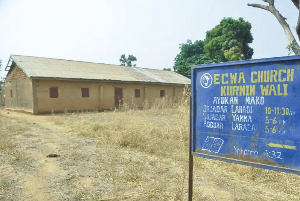Dr. Kwasi Awudzi-Yeboah, Kumasi Metropolitan Director of Health Services, has complained about inadequate funding, which he says, is posing a big challenge to quality healthcare delivery in the metropolis.
The inability of the Government to provide direct financial assistance coupled with the low rate paid to health facilities under the pilot insurance capitation, unexplained slashing of claims and delays in the payment of approved claims by the National Health Insurance Authority (NHIA) were affecting their operations.
Dr. Awudzi-Yeboah, who was speaking at a half-year performance review meeting of the metropolitan health directorate in Kumasi, said the public health facilities were finding it difficult to provide the needed infrastructure for expansion and improve the quality of services.
A total of 65 women died during childbirth during the first half of the year. He said even though cases of malaria and its related morbidity went down, the disease continued to top the Out-Patient Department (OPD) attendance.
In all, 155,000 malaria cases were recorded, compared with the 219,000 cases seen in the first six months of last year.
The Metropolitan Health Director said epidemic diseases had also been reduced through intensive public education. For the past two years, there had not been any cholera outbreak.
Dr. Awudzi-Yeboah, said they were focusing on the training of health professionals, especially midwives to offer better care to patients, particularly, pregnant women.
He commended the Kumasi Metropolitan Assembly (KMA) for its effort at helping to provide physical infrastructure, including wards and accommodation to improve healthcare.
Dr. Kwabena Opoku Adusei, President of the Ghana Medical Association (GMA), called for dispassionate discussion of the insurance capitation being piloted in the region.
He noted that its implementation was undermining healthcare delivery and therefore the need to take a second look at the new payment system.**
Health News of Monday, 30 July 2012
Source: GNA












